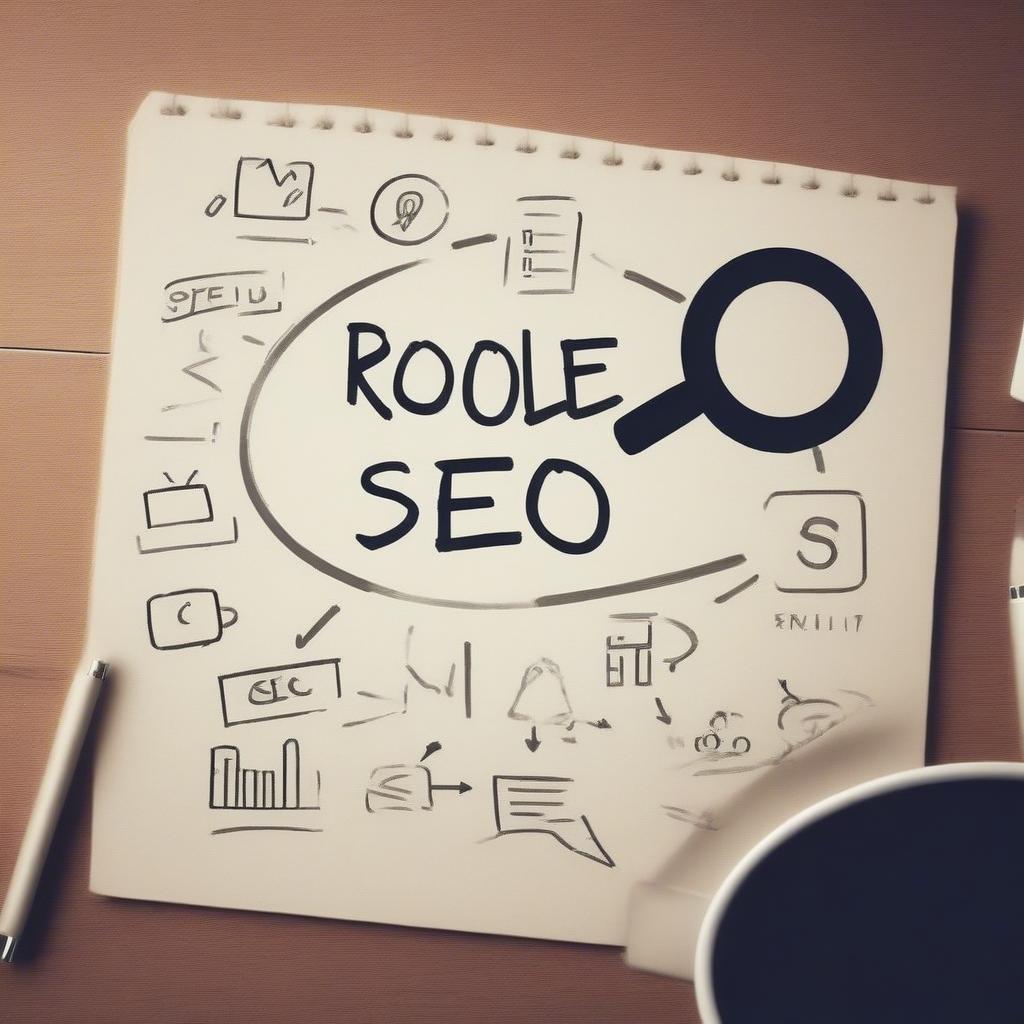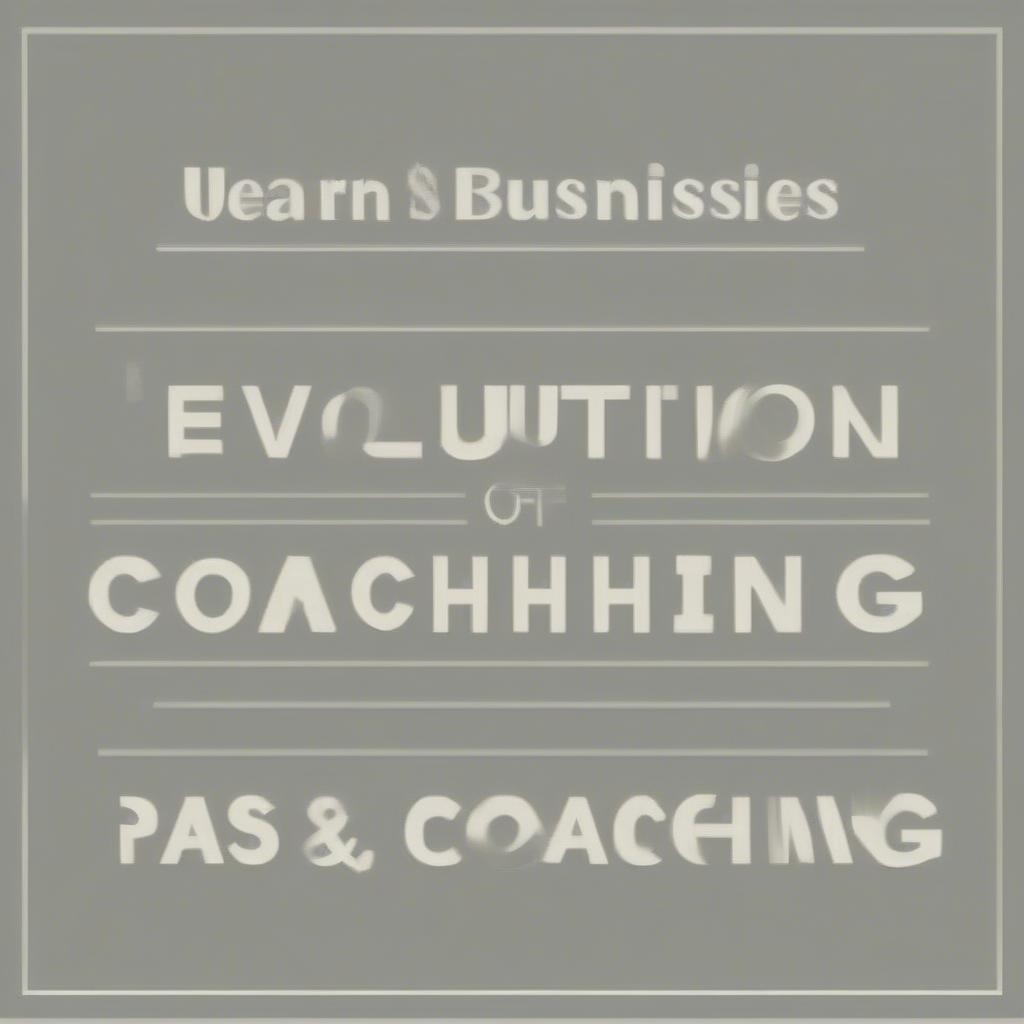
Why Your Coaching Business Needs SEO – More Than Just a Website
Imagine you’re a fantastic coach. You’re passionate, you’re skilled, and you genuinely help people transform their lives. But here’s the problem: nobody knows you exist. Your incredible coaching services are hidden, tucked away in the vast corners of the internet. That’s where search engine optimization (SEO) steps in, transforming your online presence from invisible to irresistible.
But why is coaching SEO crucial? It’s more than just ranking high on Google. It’s about connecting with the people who need your help right now. It’s about building a sustainable flow of clients who are actively searching for what you offer. Without it, you’re relying on chance, hoping that someone, somewhere, stumbles upon your website. That’s not a business strategy; it’s a wish.
The Disconnect: A Common Coaching Struggle
Many coaches are naturally gifted at what they do – guiding, inspiring, and empowering others. However, marketing, especially digital marketing, often feels like a foreign language. You might have a beautiful website, but if no one can find it, it’s essentially a digital brochure collecting dust. This is where the power of online visibility through SEO becomes essential.
Think of SEO as the key to unlocking the potential of your online presence. It’s the process of making your website attractive and understandable to search engines like Google, so they know what you offer and who to show your website to. Ultimately, search engine optimization bridges the gap between your expertise and the people searching for it.
More Than Just Ranking: The Real Benefits of SEO for Coaches
While ranking high on Google is a fantastic outcome, the benefits of SEO extend far beyond that. Here’s what you can realistically achieve with a strong SEO strategy for your coaching business:
- Attract Targeted Clients: SEO allows you to reach people actively looking for your specific coaching niche. For example, someone searching for "executive leadership coach" is a high-potential client for you if that’s your area of expertise. You’re no longer relying on generalized marketing to a broad audience, instead, you’re directly engaging with individuals already interested in your services.
- Establish Credibility and Trust: Websites that rank high in search results are often perceived as more credible. By consistently showing up when people search for relevant keywords, you build trust and authority in your coaching field. This credibility makes potential clients more likely to choose you over someone they found through an ad or a social media post.
- Drive Consistent Website Traffic: A successful SEO strategy provides a continuous stream of organic (non-paid) traffic to your website. This means you’re not constantly relying on paid advertising, leading to more stable and predictable client acquisition. Instead of a one-time surge of visitors from an ad, SEO offers a steady flow of potential clients.
- Cost-Effective Client Acquisition: While SEO requires effort, it’s generally more cost-effective than paid advertising in the long run. Over time, organic traffic reduces your reliance on paid ads, leading to a higher return on your marketing investment. Think of it as building an asset that continues to deliver results for years to come.
- Long-Term Growth and Sustainability: Unlike the fleeting nature of social media trends, SEO lays a solid foundation for long-term growth. A well-optimized website will continue to attract clients and build your brand, ensuring the sustainability of your coaching business. This isn’t about a quick fix; it’s about creating a strong, enduring online presence.
Understanding the SEO Landscape for Coaches: Key Elements
Now that you understand why coaching SEO is crucial, let’s delve into the key elements that make up a successful SEO strategy for your coaching business.
Keyword Research: The Foundation of Your SEO Strategy
Keyword research is the cornerstone of any SEO campaign. It involves identifying the words and phrases your ideal clients are using when searching for coaching services online. This is not about what you think they might search; it’s about uncovering what they actually search.
- How to Find Relevant Keywords: Use tools like Google Keyword Planner, SEMrush, or Ahrefs to find relevant keywords. Start by brainstorming the types of coaching you offer, then expand from there. Think like your ideal client. What problems are they facing? What solutions are they seeking?
- Types of Keywords: Focus on a mix of keyword types:
- Short-tail keywords: These are broad terms like "life coach" or "business coach." They have high search volume but are very competitive.
- Long-tail keywords: These are more specific phrases like "career coach for women in tech" or "leadership coaching for healthcare professionals." They have lower search volume but higher conversion rates because they’re very specific.
- Local Keywords: If you’re a local coach, include location-based keywords like "life coach in New York" or "business coach near me."
- Intent-Based Keywords: Think about the intent behind each keyword. Are people searching for information, a specific service, or a specific type of coach? Target keywords that indicate a strong intent to hire a coach.
On-Page Optimization: Making Your Website SEO-Friendly
On-page optimization involves optimizing your website content to make it attractive and understandable to both search engines and human visitors.
- Title Tags and Meta Descriptions: These are the first things people see in search results. Craft compelling title tags and meta descriptions that include relevant keywords and encourage clicks.
- Header Tags (H1, H2, H3, etc.): Use header tags to structure your content logically. Use H1 for the main heading, H2 for subheadings, and so on. This helps search engines understand the hierarchy and importance of your content.
- Content Quality: Create high-quality, informative, and engaging content that provides value to your audience. Avoid keyword stuffing; instead, use keywords naturally throughout your text.
- Image Optimization: Optimize your images with descriptive file names and alt text. This helps search engines understand what your images are about and improves accessibility for visually impaired users.
- URL Structure: Use clear, concise, and keyword-rich URLs. For example, instead of yourwebsite.com/page123, use yourwebsite.com/leadership-coaching.
Off-Page Optimization: Building Your Online Authority
Off-page optimization involves actions you take outside your website to improve your ranking in search results. It’s about building your authority and reputation online.
- Link Building: Earning high-quality backlinks from other reputable websites is essential for improving your search ranking. Guest blogging, participating in industry forums, and creating shareable content are great ways to earn backlinks.
- Social Media Engagement: While social media isn’t a direct ranking factor, it plays a significant role in increasing brand awareness and driving traffic to your website. Share your content, engage with your audience, and build a community around your coaching business.
- Online Directories and Citations: List your coaching business in relevant online directories and business listings. This increases your online visibility and helps with local SEO.
- Public Relations and Brand Mentions: Seek opportunities to be featured in publications and media outlets. Positive mentions and brand recognition enhance your authority and boost your SEO efforts.
Technical SEO: Ensuring a Smooth User Experience
Technical SEO focuses on the backend of your website. It’s about making sure your website is easily crawled and indexed by search engines and provides a seamless experience for visitors.
- Website Speed: Optimize your website loading speed. Slow-loading websites are detrimental to both user experience and SEO. Use tools like Google PageSpeed Insights to identify and fix speed issues.
- Mobile-Friendliness: Ensure your website is responsive and mobile-friendly. More than half of all web traffic comes from mobile devices. Google prioritizes mobile-first indexing, meaning they primarily use the mobile version of your website for indexing and ranking.
- Site Architecture: Plan the structure of your website so that users can easily navigate and find what they’re looking for. Use clear categories and internal linking to connect related pages.
- XML Sitemap: Create an XML sitemap and submit it to search engines. This helps search engines crawl and index your website efficiently.
- HTTPS: Make sure your website is secure with HTTPS encryption. This is now a standard and a ranking factor.
Practical Steps to Implement SEO in Your Coaching Business
Implementing SEO can seem daunting, but here’s a practical, step-by-step approach to get started:
Step 1: Keyword Research and Strategy:
- Brainstorm: Think about your ideal client, the problems you solve, and the coaching services you provide.
- Use Keyword Tools: Utilize tools like Google Keyword Planner, SEMrush, or Ahrefs to find relevant keywords.
- Analyze Results: Identify keywords with decent search volume and low-to-medium competition. Prioritize long-tail keywords.
- Create a Keyword List: Organize your keywords into categories. For example, "executive coaching," "career coaching," etc.
- Develop a Strategy: Plan how you’ll incorporate these keywords throughout your website and content.
Step 2: On-Page Optimization:
- Optimize Your Website Content: Incorporate your target keywords naturally into your website copy, including page titles, meta descriptions, and header tags.
- Create Blog Content: Start a blog and write regular articles about topics relevant to your target audience and aligned with your keywords.
- Optimize Images: Use descriptive file names and alt text for all your images.
- Check Your URL Structure: Make sure all your URLs are clear, concise, and keyword-rich.
Step 3: Off-Page Optimization:
- Build High-Quality Backlinks: Guest post on relevant websites or collaborate with other coaches in your field.
- Engage on Social Media: Share your content and engage with your audience on social media.
- List Your Business: List your coaching business in reputable online directories.
- Seek Media Opportunities: Look for opportunities to be featured in publications and media outlets.
Step 4: Technical SEO:
- Test Your Website Speed: Use Google PageSpeed Insights to identify and fix speed issues.
- Ensure Mobile-Friendliness: Make sure your website is responsive and mobile-friendly.
- Create an XML Sitemap: Create and submit an XML sitemap to search engines.
- Verify HTTPS: Ensure your website is secure with HTTPS encryption.
Step 5: Monitor and Adjust:
- Track Your Rankings: Use tools like Google Search Console or Semrush to track your rankings for target keywords.
- Monitor Website Traffic: Use Google Analytics to track your website traffic and user behavior.
- Analyze Results: Analyze your data to identify what’s working and what isn’t.
- Adjust Your Strategy: Adjust your SEO strategy based on your findings. SEO is an ongoing process, not a one-time activity.
Templates and Examples for Your Coaching SEO
Here are a few templates and examples to help you implement SEO for your coaching business:
Keyword Research Template:
| Topic Category | Potential Keywords | Search Volume (Estimated) | Competition (Estimated) | Long-Tail Potential |
|---|---|---|---|---|
| Leadership | Executive Leadership Coach | High | High | Yes |
| Leadership Development Training | Medium | Medium | Yes | |
| "Leadership Coaching for Tech Startups" | Low | Low | Yes | |
| Career | Career Coach | High | High | No |
| Career Change Coaching | Medium | Medium | Yes | |
| "Resume Writing Help for Professionals" | Low | Low | Yes |
On-Page Optimization Checklist:
- [ ] Title tag: Includes target keyword and a compelling call to action.
- [ ] Meta description: Includes relevant keywords and encourages clicks.
- [ ] Header tags: Properly used to structure content.
- [ ] Keyword density: Keywords are used naturally throughout the text.
- [ ] Image optimization: Images are compressed and optimized with descriptive file names and alt text.
- [ ] URL structure: Clear, concise, and keyword-rich URLs.
Blog Post Example:
- Title: "5 Proven Strategies to Improve Your Leadership Skills (and Why You Need a Coach)"
- Keywords: "Leadership Skills," "Leadership Coach," "Executive Coaching," "Leadership Development"
- Content: Informative article outlining leadership strategies, and seamlessly integrating coaching as the key to success.
Backlink Building Email Template:
- Subject: Guest Post Opportunity for [Your Name]
- Body: "Hi [Name], I’ve been a long-time follower of your blog at [Website] and deeply appreciate your content on [Topic]. As a [Your Profession] with expertise in [Topic], I’d love to contribute a guest post on [Relevant Topic]. My article will offer practical insights for your readers on [Value Offered]. Would you be open to discussing this further? Best regards, [Your Name]"
The Power of Learn Business: Your SEO Partner
Building and managing your SEO strategy is not an easy task, and that’s where Learn Business comes in as a perfect partner. Learn Business understands the unique needs of coaches and offers a comprehensive suite of resources to support your business growth, particularly in the area of SEO.
Here’s how Learn Business supports your business journey:
- SEO Guidance Specifically for Coaches: Learn Business offers tailored guidance, resources and templates specifically designed for coaches. Our resources understand your unique challenges and will help you optimize your online presence. We provide step-by-step guides, checklists, and templates to help you implement SEO effectively.
- Ready-to-Use SEO Templates: Time is valuable, and Learn Business understands that. Instead of creating everything from scratch, we offer ready-to-use templates for keyword research, content creation, and on-page optimization. These templates save time, allowing you to focus on what you do best – coaching.
- Business Growth Resources: Beyond SEO, Learn Business supports all aspects of your coaching business, from marketing to operations. With our range of resources, you can build a strong, sustainable coaching practice.
- Community and Support: Connect with a community of fellow coaches, share your challenges, and learn from others’ experiences. Learn Business provides a supportive environment where you can grow and thrive.
- Ongoing Support and Updates: The SEO landscape is ever-changing, and Learn Business ensures you’re always up-to-date with the latest trends and best practices. We provide ongoing support, updates, and resources to keep your coaching business ahead of the curve.
- Customization and Flexibility: We understand that every coaching business is unique. Our resources are designed to be flexible, allowing you to tailor them to your specific niche and goals.
Learn Business offers a holistic approach to your business growth. Our goal is to empower coaches like you to achieve their full potential, and we provide the tools and knowledge you need to thrive in today’s digital world.
Final Thoughts: SEO is Not Optional, It’s Essential
In today’s digital age, a strong online presence is no longer optional for a coaching business – it’s essential. Coaching SEO is not just about ranking high on Google; it’s about connecting with the right people, building a trusted brand, and achieving sustainable growth.
By understanding the core principles of search engine optimization, and by implementing a practical, step-by-step approach, you can unlock your online potential and attract a consistent stream of clients who are eager to benefit from your coaching services. You don’t have to navigate this journey alone. Learn Business is here to support you every step of the way, offering guidance, resources, and templates tailored to your unique needs. Embrace SEO, and watch your coaching business flourish.
Remember, your expertise and passion, combined with a solid SEO strategy, are the ingredients for a truly successful coaching business. Start optimizing today, and take your online visibility and your business to new heights.



Leave a Reply